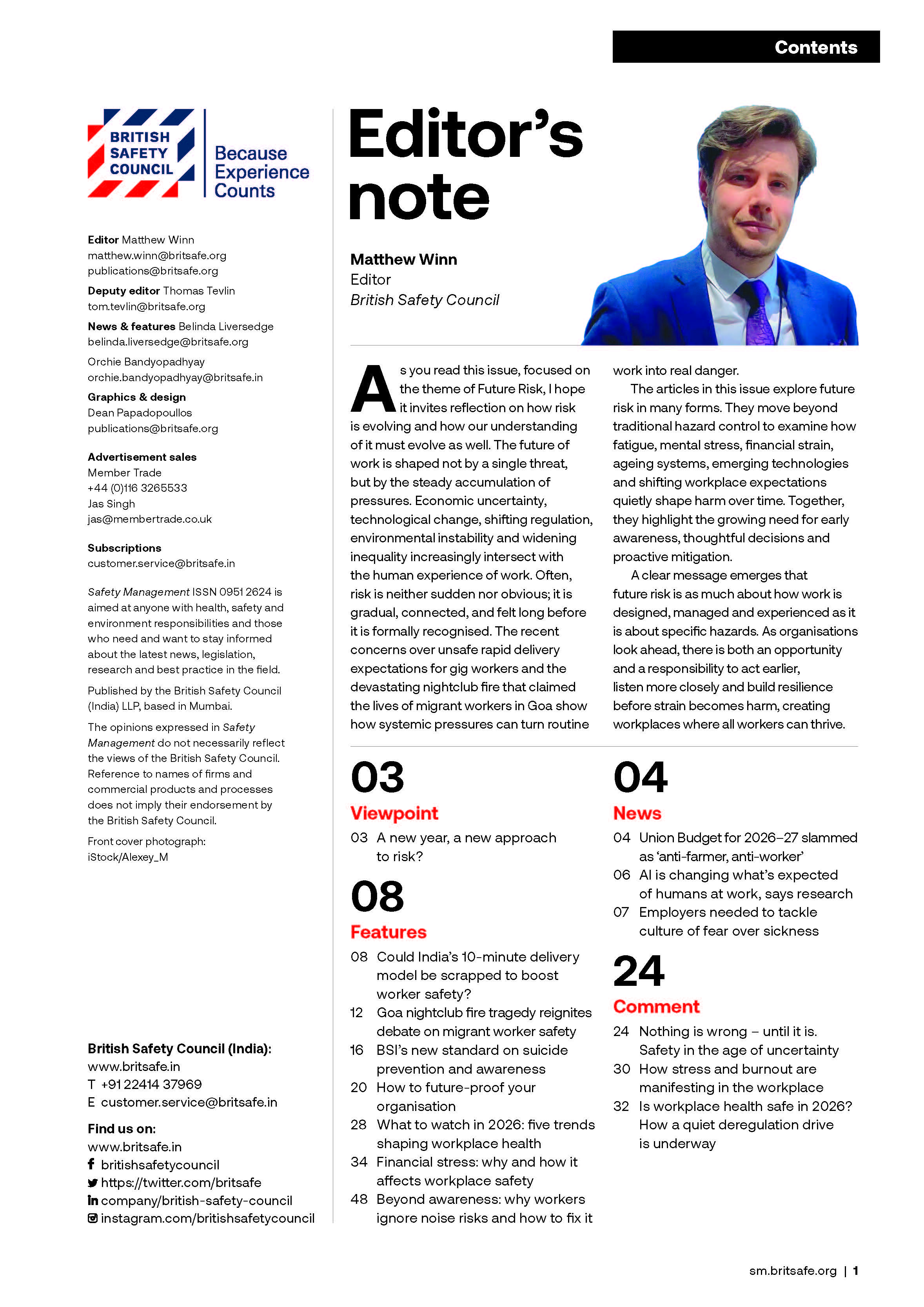App-based gig workers in Karnataka state will shortly gain new employment rights and access to certain social security benefits after the state governor formally gave assent to an ordinance, or law, aimed at ensuring the welfare of platform-based workers.
News
Karnataka passes law granting employment and social security rights to app-based gig workers
The Platform-Based Gig Workers (Social Security and Welfare) Ordinance 2025, which the state governor promulgated, or approved, in May, aims to protect and improve the rights of platform-based gig workers by creating a welfare fund to cover the cost of social security benefits and placing certain new legal obligations on aggregators, or app platforms, in Karnataka state.
The ordinance will levy a cess, or tax, on all customer transactions on app platforms – such as food delivery and taxi apps Swiggy, Zomato, Amazon, Ola and Uber – to create a welfare and social security fund to pay benefits to gig workers engaged by the apps. The welfare cess will be set at a rate ranging from one to five per cent of the payment made to gig workers for each transaction on the platforms, and will come into force within six months of the passing of the ordinance.

The Karnataka state government is expected to announce the exact fee structure for different categories of platforms within six months, although it has been reported that different categories of aggregator will face different levies. The welfare fund will also receive financial contributions from individual platform-based workers and grants from the central and Karnataka state government.
Welfare board
Under the ordinance, the Indian National Congress-led Karnataka government has the power to establish a welfare board with the authority to announce general or sector-specific social security and other benefits for gig workers working for app platforms. The board will comprise state government ministers and officials, representatives of gig workers and aggregators and representatives from civil society with experience of and expertise in the gig economy.
The board will oversee the Karnataka Gig Workers Social Security and Welfare Fund, which will offer app-based gig workers social security benefits, such as income security during periods of unemployment, illness, maternity or work-related injuries. Under the ordinance, the board will be limited to allocating no more than five per cent of the fund for its administrative expenses, in an attempt to ensure the maximum amount of money in the fund is spend on worker welfare measures.
Welfare cess
The aggregators will be responsible for collecting the welfare cess from the customer transactions on their platforms, and transferring the funds to the state welfare fund on a quarterly basis. If there are any delays in transferring the funds, the aggregators and app platforms will be required to pay interest at a rate of 12 per cent per annum, calculated from the date the payment is first due until it is eventually transferred to the fund.
The ordinance will also allow the Karnataka government to introduce a digital Payment and Welfare Fee Verification System in a bid to ensure transparency around the collection of welfare fees. Details of all payments made to the gig workers and the welfare fees deducted from these payments by the aggregators will have to be sent digitally to the new verification system.
In addition, all aggregators operating in Karnataka will have to register with the welfare board and provide a database of the gig workers they engage within 45 days from the ordinance becoming law. The welfare board will then generate unique IDs for all registered gig workers, which will be portable across various platforms and sectors. The IDs will be used to track entitlements, payouts and contributions.
New duties
The ordinance also places a series of new duties on aggregators designed to improve the working and employment conditions of the gig workers they engage. In particular, aggregators will have to provide a “non-discriminatory, safe and healthy working environment” and provide gig workers with “fair” contracts, including 14 days’ notice before making any amendments to contracts. Gig workers will also have to be given 14 days’ notice in writing before terminating their ability to gain work from an app; gig workers will have to be paid on at least on a weekly basis; and apps must give reasons for any payment deductions.
The aggregators will also have to establish a human point of contact where gig workers can send queries relating to their new rights under the ordinance and set up procedure enabling workers to seek information about any automated decision-making systems used by the apps to manage aspects of the workers’ tasks under the apps, such as the workers’ access to an app to obtain work.
Aggregators and platform companies will also have to set up Internal Dispute Resolution Committees to address grievances raised by gig workers and the committees will be required to conclude their investigations and provide the gig worker with a written report detailing the action taken within 14 days of receiving the complaint.
Also, if the gig worker is not satisfied with the decision of the internal committee, they will have the right to file an appeal against the committee’s decision to the welfare board, whose decision will be final.
Aggregators who fail to comply with any of the new duties under the new welfare system will face fines of up to Rs 5,000 for the first violation, and Rs 1 lakh for any subsequent violations.
The ordinance is expected to be passed into law in the form of a bill in the upcoming Monsoon Session of the Karnataka legislature in July.
Decision welcomed
The Karnataka government’s move has been welcomed by a number of politicians and labour rights campaigners. Rahul Gandhi, Congress MP and opposition leader in the Lok Sabha, described it as a “historic step… that guarantees rights, dignity and protection to gig workers” in Karnataka state.
In a post on microblogging site X, Gandhi said: “These workers bring us food, deliver essentials, and drive us safely – in the heat, cold, and rain. Yet too often, they are blocked from their apps without explanation, denied sick leave, and paid according to opaque algorithms. We are changing that.
“Karnataka’s new ordinance ensures social security, fair contracts, transparency in algorithmic pay, an end to arbitrary blocking.
“This is how technology should serve people – driving innovation and justice.”
Meanwhile, in a separate move, former Rajasthan chief minister Ashok Gehlot and Tikaram Jully, Congress Legislative Party Leader in Rajasthan’s Legislative Assembly, have called on Rajasthan’s current BJP-led state government to implement a law passed by the previous Congress-ruled government aimed at ensuring the welfare of gig workers.
The Rajasthan Platform Based Gig Workers (Registration and Welfare) Act was passed by the then Congress Rajasthan Government headed by Gehlot in July 2023. The Act follows a similar model to the ordinance recently introduced by Karnataka, including the proposed establishment of a welfare board and a dedicated social security fund for platform-based gig workers in the state. It would also introduce a grievance redressal mechanism for gig workers. However, while the Act was passed in July 2023, it has not yet come into force.
In a post on X, Gehlot said that in keeping with the sentiments of Congress leader Rahul Gandhi, the then Congress-ruled Rajasthan Government had passed the country’s first-ever Gig Workers’ Welfare Act, providing a framework to ensure social security benefits and employment rights for the state’s app-based gig workers.
“I want to appeal to the Government of Rajasthan to implement this law made by our government in 2023 and give gig workers the right to social security and respectable living,” Gehlot said.
NEWS


Union Budget for 2026–27 slammed as ‘anti-farmer, anti-worker’
By Orchie Bandyopadhyay on 13 February 2026
The Union Government’s claim its 2026–27 Budget will improve the lives of the “poor, underprivileged and the disadvantaged” has been met with sharp criticism, with opposition parties claiming the announced measures fail to tackle deep-rooted problems such as youth unemployment, falling standards of living in the agricultural community, and inadequate salaries for key public health workers.




